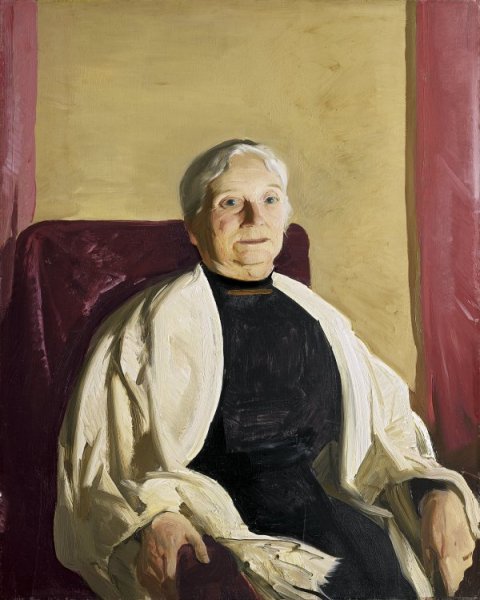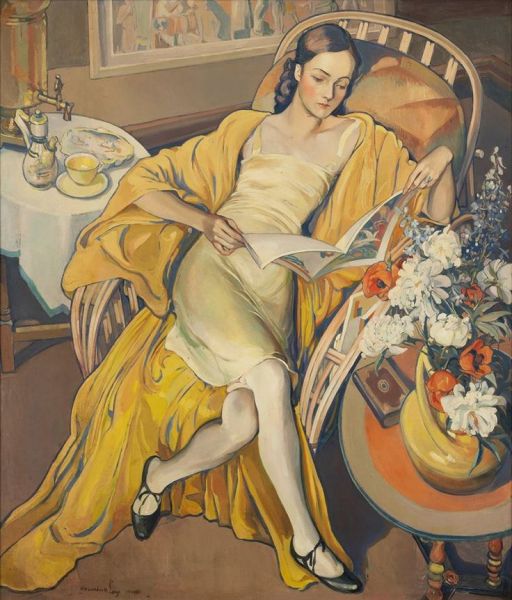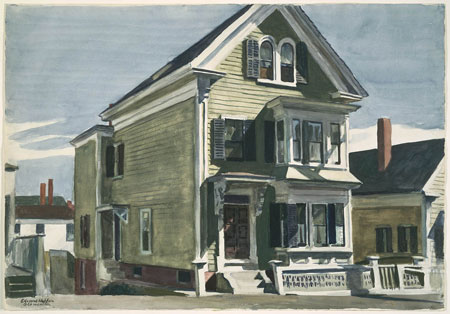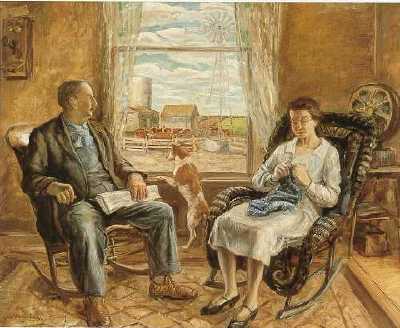Find a book

A Book a Month
We can send a book a month for six or twelve months - the perfect gift. More »

On this page, once a month we give a new perspective on one of our books.
Persephone Book No. 101 Heat Lightning by Helen Hull
Heat Lighting, written in 1931, is set in the American Midwest in the summer of 1930, nine months after the Wall Street Crash, ten years into Prohibition. The War casts a long shadow. At Westover Plows and Farming Implements, the family firm founded by Mary Westover’s husband, the future looks uncertain, and for the children, grandchildren and great-grandchildren of Madam Westover, as she is known in Flemington there are hard times ahead. ‘The Depression was upon us,’ wrote Helen Hull in 1932, ‘the Modern Temper was one of disillusion, positive standards for living seemed impossible to grasp.’ When family tragedy meets national drama, few will prove to have inherited much, or any, of the pioneer spirit, backbone or courage of Madame Westover.
There are some amazing grandmothers in Persephone Books, for example Louisa Ashton in Greenbanks and Louise Beckford in The Winds of Heaven, but Grandma Westover is in a class of her own. Although the author is sparing when it comes to the back history of her characters, we can surmise that she was married by 1870, at the start of a period of expanding industrialisation which would last for nearly sixty years: on 29th October 1929 Black Tuesday hit Wall Street and the rural Midwest, where farm incomes were already falling, faced disaster.
 Grandmother by George Bellows. 1914
Grandmother by George Bellows. 1914
Mary Westover's three children, six of her eight grandchildren, and a clutch of great-grandchildren, live near her in Flemington, in physical but not emotional proximity. Sibling rivalries and old animosities are compounded by the addition to the fold of widely differing in-laws, but largely held in check day-to-day, or simply left unexamined. Madam Westover’s French granddaughter-in-law Felice wisely observes that 'when you are with people … you strike a balance between yourself and each of them, and forget then what each is like.' She herself is an outsider – she had married Madam Westover’s grandson, Theodore, knowing scarcely a word of English – and is talking to Amy, her sister-in-law, newly arrived from New York: 'You see it more clearly, coming from away … I think it must be' - she paused to feel for a word – 'enlightening, to come back to this huge family.' (Her choice of word is significant: references to light abound in the novel, echoing the title.) Amy is conscious of enjoying a brief period of clarity, free of the old pattern, not yet ‘drawn back into a more habitual family relationship …’ She is both insider and outsider, torn between the impulse to slip back into the easy security of childhood, aware that the old certainties are threatened, and the need to confront the present and future challenges of marriage and motherhood. Her own slowly evolving personal crisis is woven from the very start into this meticulously structured novel.
Helen Hull has us in thrall within half a page, and not a word wasted. In a brief opening paragraph, with all the succinctness of a practised short-story writer (as well as seventeen novels, she published sixty-five short stories), she places her immediately engaging principal character, the voice of the novel, in the town where she grew up, a town in the Midwest, small enough to be centred around a village green, and to have just the one ‘main street’, large enough for the long distance bus to call by, but not the train, which stops in the nearby city. It’s midsummer, and somehow we feel, without quite being told, airless. Born in the as yet nameless town still lived in by dozens of her relations, Amy has evidently been away for many years (we guess from this that she must be at least in her thirties), far enough to make only annual visits, usually in winter. The reason for this summer visit is unclear, though we presume pressing, ‘a kind of flight’ she calls it. Numerous though the family members are, there is, surprisingly, no one to meet her. From the first page we appreciate that throughout the novel not every 'T' will be crossed nor 'I' dotted. We must read very, very carefully and pick up every clue.
 Resting by Alexander O Levy 1930 'She felt for a moment an illusion of coolness at the touch of silk folds against warm skin ...'
Resting by Alexander O Levy 1930 'She felt for a moment an illusion of coolness at the touch of silk folds against warm skin ...'
We know only as much as Amy knows, or others let slip in conversation. We quickly grasp that her own significant, pioneering journey from Michigan to New York mirrored the East-West journey made half a century before by her grandmother. We are not told when it took place, or why. Education? Love? Work or simply a brave bid for independence from an excessively large family? The briefest of references to France and the War suggests that she might have been nursing there – Helen Hull drops hints so delicately that they fall like pins. We can assume that Amy has been away from Michigan for twelve years, at least. She has a tricky husband, but Grandmother likes him so he must be ‘a good thing’ in spite of his faults – Madam Westover knows about straying husbands. Amy has a son and a daughter, and she has a job, book reviewing, which means that she feels no need to apologise to her sister or her cousin about paying for private schools and summer camps for her children, and ready-made clothes for herself: a fascinating period detail, like her mother’s washing machine and bought canned produce and her brother’s dishwasher and electric ice box – more advanced still. When we first catch sight of Madam Westover, she is, in true and undying pioneer spirit, peeling and canning her own peaches – a vivid domestic manifestation of the generation divide.
Heat Lighting is about family differences, family affections, between and across generations, about marriage, about parents and about children, about age and about youth. Helen Hull pens wonderful miniature portraits, from the youngest, Amy’s sister Mary’s new baby, who lies on her grandmother’s lap, ‘not yet smoothed nor bleached’, to the old woman herself, who ‘didn’t look thin … so much as properly old, as if her age had dispensed with flesh, leaving the hard bones, beautifully shaped, close against the skin.’ Aunt Lora’s pale face has a ‘rapacious mournfulness’, and she drifts about ‘in melancholy curves as if her bones were too soft’; her unreliable, bootlegging, philandering son Tom has ‘a kind of conscious maleness in his dark, heavy-lidded eyes, set not quite symmetrically in his long face.’ The character is in the face. Her most disliked aunt by marriage, the socially aspirational Isabelle, speaks with an ‘ostentatious southern drawl’, which ‘had as always, a specious warmth.’ For her Amy must put on her dangliest ear-rings because ‘Isabelle had to be ridden down.’ This is an American novel.
]
Andersons' House by Edward Hopper 1926
Troubled by her own marriage Amy examines those of her extended family. Her sister Mary, married (too) young to sweet but war-damaged, only intermittently employable Henry; brother Theodore to French Felice, a childless marriage, close and thoughtful; Uncle Dewitt drawn into reckless financial deals to maintain his wife in the manner to which she would like to be accustomed, Aunt Lora unhappily divorced. The strongest and most contented is that of her parents, whose pleasure in each other’s company is palpable and private. Amy recalls the the murmur of low voices from her father’s and mother’s room, ‘her father and mother had, together made a warm light in which the children dwelt’. She has an inkling as to how her parents’ marriage works: ‘She meets him where he stands, not where she is, herself. She doesn’t care about justifying herself to him … in the long run, she wins. Father always fundamentally knows where she is.’ But she has sense enough to know that it cannot be copied, and that there are times when it cannot be intruded on. Grandmother Westover has stern, old-fashioned views on marriage, learned perhaps from her own mother, ‘When I fell in love, I expected that to last me a lifetime … and it did. You have to take care of it, or it won’t last.’ She is wise but does not pretend to advise; ‘what an old woman knows can’t help her, her life with a man being over and done with. Nor can it help a young woman, for she wouldn’t listen if you told her all you know. No, we have to go it alone … a lifetime’s too short to find your way about another’s heart, without blundering and mistakes.’ The secret of other peoples’ marriages as Amy realises is just that, a secret. Looking for a model, she must accept that ‘it was just what no one would tell that might give a glimmer about how to live.’
]
My Mother and Father by John Steuart Curry. 1929]
She admires what she thinks of as her grandmother’s ‘code’, the ‘positive standards’ to which Helen Hull refers, lamenting the lack of such a code in her own generation, aware that the old one won’t serve, and struggling to formulate a fresh one. Alfred and Mary Westover had belonged to a generation who had confronted challenges requiring both physical and moral fortitude, but which offered those capable of meeting of them tremendous hope for the future. They had married and reared their children and grown their business when confidence and optimism prevailed in the nation. The War in 1914 had undermined that. The Depression would shatter the ‘gallant assurance’ of her grandparents.
Wilfully blind to the new reality, some members of the family vainly seek security in the old ways. But Amy has inherited her grandmother's valiance. She accepts that the old guide-posts have collapsed or been torn down, that for the time being life must inch along ‘in random spurts’, but, like her grandmother, and her mother, she is ready to be guided by the eternal virtues, ‘courage, love and loyalty.’ This much she has learned during a week, transformative for the family, and for her, during which emotions have been stretched almost to breaking point, and loyalties have been tested. The future is far from clear, but Amy and perhaps one or two others have glimpsed a possible way forward. ‘… perhaps feeling was a kind of electric disturbance in which old sluggishness and stupidity were consumed. Heat lighting revealing flashes in a murky summer night.’ This is a truly brilliant novel.
